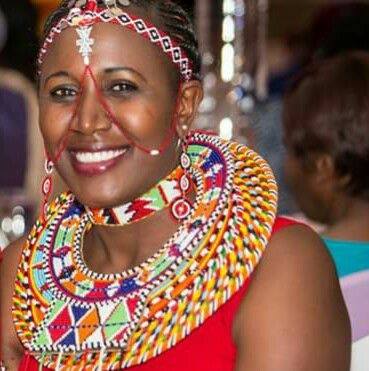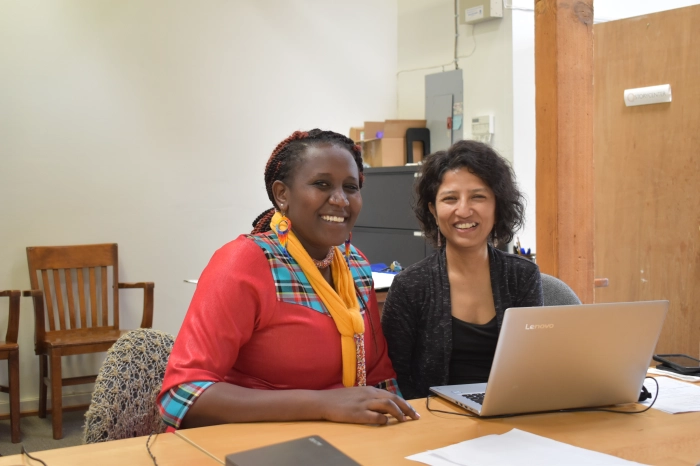
By Severina Lemachokoti
I chose to tell this particular story about my experience with Female Genital Mutilation (FGM) because the story defines me, who I am, and shows what my culture/tradition branded me with. The story reflects the reality of what I went through and what I felt as a little girl. This is my other life that no one knows unless I share it with them. Sharing my story at the Sahiyo Stories workshop was a bit hard, but at the same time, it was a relief because I shared it with women who can relate to my hurt, women who have gone through painful and traumatic experiences as other FGM survivors. I felt comfortable and at ease with my sisters. I enjoyed the sisterhood, the courage, and passion that each of them embraced during the entire time. The storytelling process was smooth and very educative. I was able to revise my own story and put it in a way that I am confident will make a difference to our communities.
My advocacy on FGM is primarily focused on community education and the mental health of the survivors. As an activist, I believe that FGM will end when our communities are educated on the negative effects of FGM and find alternative ways of celebrating cultural practices without cutting girls’ genitalia. I am also aware that it is the right of each community to uphold their traditions and beliefs, but culture should not violate the rights of young girls in any way either. The mental health of survivors is a critical issue that needs to be looked into and addressed. Most of us are traumatized and still bear the pain of the cut even after so many years and it is necessary that survivors get healed in order for them to step up and talk about FGM in a way that can save other young girls who are at a risk.
My story is not very different from those of other survivors, but at the same time, I believe I am unique and so my story is unique because of the painful experience and feelings that I had during the cutting. My hope is that my story and the stories of my other sisters will change our communities. I am looking forward to working with various organizations and individuals to see that our girls are free from FGM across the world. I will basically do my activism work till the end of my days, and advocate for supporting the mental health of FGC survivors across the world.
To learn more about Sahiyo Stories, read:
- Seeing Sahiyo Stories on Female Genital Cutting Come to Life.
- The inner-workings of Sahiyo Stories
- The Making of Sahiyo Stories

More about Severina

Severina Lemachokoti is an anti-FGM campaigner, a human rights defender and a gender activist from the Samburu community in Northern Kenya. Severina graduated from Wichita State University, Kansas State with a Master’s Degree in Liberal Studies, with focus on Community Psychology, Sociology and Women Studies. She was the Cultural Ambassador- Kenya, at Wichita State University and participated in various activities that fostered diversity and inclusion. She worked as a graduate research assistant in the Criminal Justice department and also worked at the graduate office as a receptionist. Severina is a professionally trained teacher and holds a bachelor’s degree in counseling psychology and a higher diploma in psychological counseling. As one of the survivors of FGM, Severina uses her own experience to educate young girls from Kenya and her community to say “NO” to FGM and other harmful cultural practices. She has helped in changing the lives of young girls and women in her community through mentorship programs in schools and churches. Severina worked as a program officer for the ANTI-FGM Board, a government body under the ministry of gender to implement the ANTI-FGM act of 2011 and the 2010 constitution of Kenya to protect the rights of young girls in Kenya. Severina is a member of various organizations in Kenya and Africa that defend the rights of young girls and has spoken in various conferences including the UN on the rights of young indigenous girls and women.